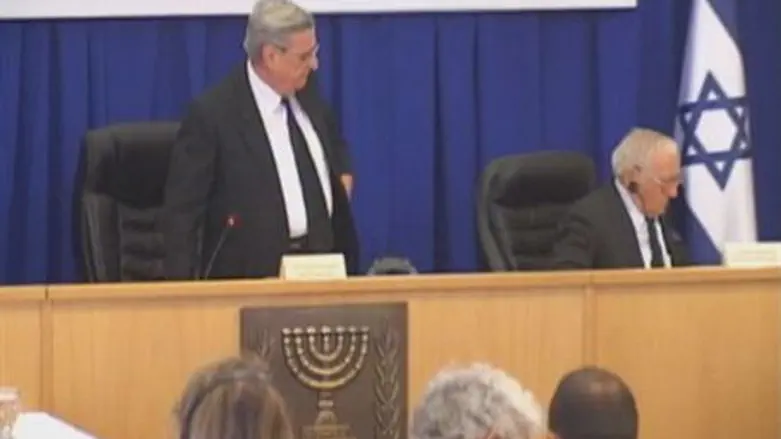
The Turkel Commission, which investigated last May’s incident on the Mavi Marmara, will submit on Sunday the first part of its report to Prime Minister Binyamin Netanyahu, following which the report will be presented to the public.
The report is expected to clear the IDF of any wrongdoings in the flotilla incident. It will determine that the naval operation to take over the Gaza aid flotilla was not a violation of any international laws and that the soldiers acted on the Mavi Marmara out of self-defense.
The first part of the report deals with the legality of the naval blockade imposed on the Gaza Strip and whether it adheres to the principles of international law. It also includes a summary of actions taken by the IDF to enforce the blockade and discusses the organizers and participants of the flotilla.
After submitting the first part of the report, the committee will continue to work for another few months and complete the second part, which will examine the question of whether the mechanisms for examining and investigating complaints and claims raised in relation to violations of the laws of armed conflict conform with the obligations of the State of Israel under the rules of international law. The second part of the report will also discuss additional issues raised during the committee’s work, such as the decision-making process on the political level with regard to the military action to stop the flotilla.
The Turkel Commission was established following the Turkish flotilla incident on May 31, when a group of so-called “peace activists” sent by the radical Turkish group IHH, tried to break the naval blockade on the Gaza Strip on the grounds that they were carrying humanitarian aid to Gaza’s residents.
The Israeli Navy initially requested the ships to change course peacefully from Gaza and head for Ashdod, where they would be able to unload their aid material, which would then be transferred over land to Gaza after undergoing security inspections. The activists refused and the soldiers had to take over the ships.
Upon their arrival on one of the ships, the Mavi Marmara, the soldiers were brutally attacked with metal clubs by the Muslim radicals onboard. The “peace activists” were trained in terrorism and tried to kill the soldiers before Navy officers issued an “open fire” order.
The soldiers were under orders not to shoot, but the “open fire” command was given after stun grenades failed to disperse the attackers. Nine people were killed, most of them from Turkey. An inspection of the ship following the incident found that there was no humanitarian aid on it whatsoever.
Judge Yaakov Turkel, who heads the inquiry commission, served on the Supreme Court from 1995 until 2005. The commission also includes two foreign observers: Irish politician and Nobel Peace Prize laureate William David Trimble and former Judge Advocate General of the Canadian army Brigadier-General Kenneth Watkin. The two have said that they support the committee’s conclusions as they are to be presented on Sunday.
